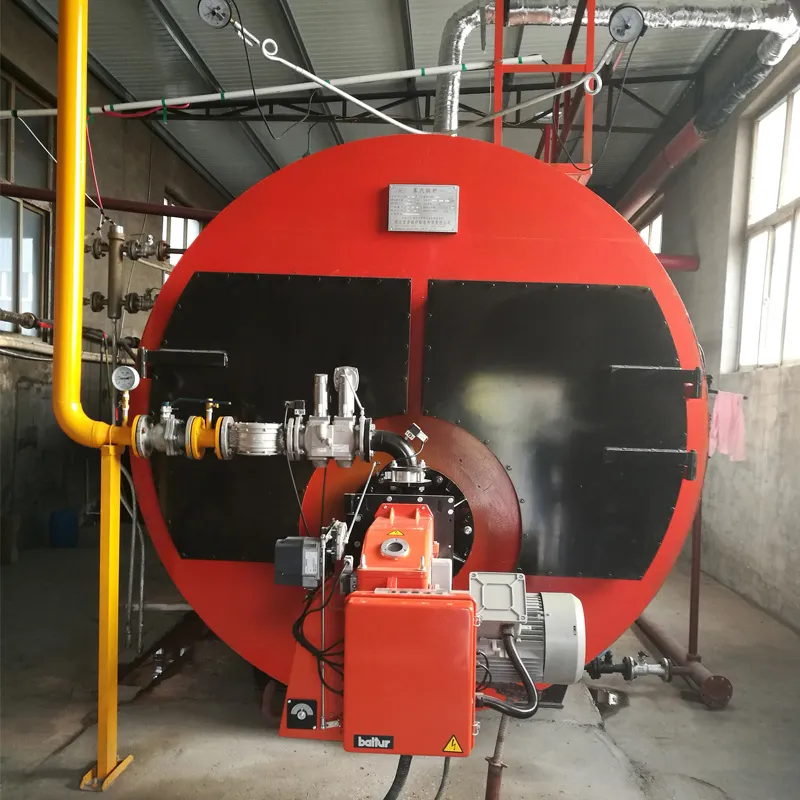
Aug . 13, 2024 15:55 Back to list
Efficient and Reliable Coal-Fired Hot Water Boiler for Industrial Heating Applications
The Role of Coal-Fired Hot Water Boilers in Modern Energy Systems
In the quest for reliable and cost-effective energy sources, coal-fired hot water boilers have been a significant player in various sectors, including residential heating, industrial processes, and power generation. Despite the global push towards greener energy alternatives, coal remains a prominent fuel due to its abundance, economic viability, and established technology. This article explores the functionality, efficiency, and environmental concerns associated with coal-fired hot water boilers and their evolving role in contemporary energy systems.
Functionality and Design
Coal-fired hot water boilers are designed to convert the energy stored in coal into hot water for heating and industrial applications. The combustion process begins with pulverizing coal, which increases its surface area for efficient burning in the boiler. The main components of a coal-fired boiler include the combustion chamber, heat exchangers, and economizers, which maximize the transfer of heat from flue gases to the water.
These boilers are commonly used in district heating systems, where hot water is distributed to multiple buildings through a network of insulated pipes. They are also employed in industries that require large volumes of hot water, such as food processing, chemical manufacturing, and textiles. In addition, they are utilized in residential settings, particularly in areas where other fuel sources may be scarce or prohibitively expensive.
Efficiency and Technological Advancements
Historically, coal-fired boilers have been criticized for their environmental impact and low efficiency compared to modern gas or renewable energy systems. However, advancements in technology have significantly improved their performance. Modern coal-fired hot water boilers are designed with sophisticated control systems that optimize combustion, reduce emissions, and enhance overall thermal efficiency.
For instance, employing air preheaters can recover waste heat from exhaust gases and use it to preheat incoming air, thereby boosting efficiency. Additionally, advanced pollution control technologies, such as flue gas desulfurization and electrostatic precipitators, help mitigate harmful emissions, including sulfur dioxide (SO2) and particulate matter.
coal fired hot water boiler

In terms of fuel flexibility, some coal-fired boilers are being redesigned to accommodate blends of biomass and coal, creating a more sustainable approach to energy production. This transition aligns with efforts to reduce greenhouse gas emissions and decrease reliance on fossil fuels.
Environmental Considerations
Despite technical advancements, coal-fired hot water boilers face significant scrutiny due to their environmental footprint. The combustion of coal produces carbon dioxide (CO2), a leading greenhouse gas contributing to climate change. Additionally, the mining and transportation of coal can result in ecological degradation and air pollution.
As a response to these concerns, many countries are implementing stringent regulations on emissions and exploring alternative energy sources. This shift necessitates a reevaluation of coal-fired technologies, focusing on their role as transitional solutions in the move toward a low-carbon future.
The Future of Coal-Fired Hot Water Boilers
While the long-term outlook for coal-fired hot water boilers may appear uncertain amid a global shift to renewable energy, they will likely continue to play a role in certain contexts. In regions where coal is abundant and economic constraints limit the adoption of alternative energy sources, these boilers may provide a practical solution for meeting energy demands.
As the industry evolves, the challenge will be to balance energy security, economic stability, and environmental responsibility. Continued investment in cleaner technologies and the integration of renewable energy will be crucial steps in transforming coal-fired hot water systems into more sustainable energy solutions.
In conclusion, coal-fired hot water boilers remain an essential component of many energy systems worldwide. Their adaptability, coupled with ongoing technological improvements, may allow them to coexist with emerging energy sources as part of a diversified and resilient energy landscape.
-
High-Efficiency Commercial Oil Fired Steam Boiler for Industry
NewsJul.30,2025
-
High-Efficiency Biomass Fired Thermal Oil Boiler Solutions
NewsJul.30,2025
-
High Efficiency Gas Fired Thermal Oil Boiler for Industrial Heating
NewsJul.29,2025
-
High-Efficiency Gas Fired Hot Water Boiler for Sale – Reliable & Affordable
NewsJul.29,2025
-
High Efficiency Biomass Fired Hot Water Boiler for Industrial and Commercial Use
NewsJul.29,2025
-
High-Efficiency Biomass Fired Hot Water Boiler for Industrial Use
NewsJul.28,2025
Related PRODUCTS






















